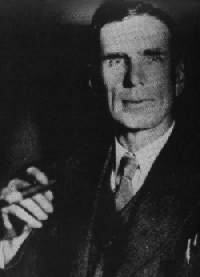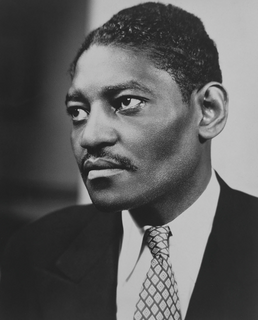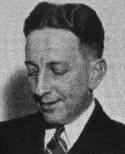Background
This case was the second landmark decision arising out of the Scottsboro Boys trials (the first was the 1932 case, Powell v. Alabama ). Haywood Patterson, along with several other African-American defendants, were tried for raping two white women in 1931 in Scottsboro, Alabama. The trials were rushed, there was virtually no legal counsel, and no African-Americans were permitted in the jury. All defendants, including Patterson, were convicted. The Communist Party of the United States assisted the defendants and appealed to the Supreme Court, which overturned the convictions in 1932 (in the Powell v. Alabama decision) due to lack of legal counsel.
A second set of trials was then held in Decatur, Alabama. In spite of lack of evidence, the jury sentenced Patterson to death in the electric chair. Judge James Edwin Horton overturned the verdict, and a third trial was held in 1933. The third trial also resulted in a death penalty verdict. No African Americans were included in any of the juries, nor were any ever considered for jury duty in Alabama. This decision was appealed to the Supreme Court, on the basis that the absence of African Americans from the jury pool denied the defendants due process.
The Supreme Court agreed, and the convictions were overturned.
In 1936, the defendants were tried, some for the fourth time, again for rape. In this trial, the verdicts were again guilty, but sentences were long prison terms rather than the death penalty.

The Sixth Amendment to the United States Constitution sets forth rights related to criminal prosecutions. It was ratified in 1791 as part of the United States Bill of Rights. The Supreme Court has applied the protections of this amendment to the states through the Due Process Clause of the Fourteenth Amendment.
![Scottsboro Boys Nine [[African Americans|African American]] teenagers accused of rape in 1931](https://upload.wikimedia.org/wikipedia/en/thumb/4/41/Leibowitz%2C_Samuel_%26_Scottsboro_Boys_1932.jpg/320px-Leibowitz%2C_Samuel_%26_Scottsboro_Boys_1932.jpg)
The Scottsboro Boys were nine African American teenagers, ages 13 to 20, accused in Alabama of raping two white women in 1931. The landmark set of legal cases from this incident dealt with racism and the right to a fair trial. The cases included a lynch mob before the suspects had been indicted, all-white juries, rushed trials, and disruptive mobs. It is commonly cited as an example of a miscarriage of justice in the United States legal system.
Batson v. Kentucky, 476 U.S. 79 (1986), was a landmark decision of the United States Supreme Court ruling that a prosecutor's use of a peremptory challenge in a criminal case—the dismissal of jurors without stating a valid cause for doing so—may not be used to exclude jurors based solely on their race. The Court ruled that this practice violated the Equal Protection Clause of the Fourteenth Amendment. The case gave rise to the term Batson challenge, an objection to a peremptory challenge based on the standard established by the Supreme Court's decision in this case. Subsequent jurisprudence has resulted in the extension of Batson to civil cases and cases where jurors are excluded on the basis of sex.
Powell v. Alabama, 287 U.S. 45 (1932), was a landmark United States Supreme Court decision in which the Court reversed the convictions of nine young black men for allegedly raping two white women on a freight train near Scottsboro, Alabama. The majority of the Court reasoned that the right to retain and be represented by a lawyer was fundamental to a fair trial and that at least in some circumstances, the trial judge must inform a defendant of this right. In addition, if the defendant cannot afford a lawyer, the court must appoint one sufficiently far in advance of trial to permit the lawyer to prepare adequately for the trial.
Moore et al. v. Dempsey, 261 U.S. 86 (1923), was a United States Supreme Court case in which the Court ruled 6–2 that the defendants' mob-dominated trials deprived them of due process guaranteed by the Due Process Clause of the Fourteenth Amendment. It reversed the district court's decision declining the petitioners' writ of habeas corpus. This case was a precedent for the Supreme Court's review of state criminal trials in terms of their compliance with the Bill of Rights.
Coker v. Georgia, 433 U.S. 584 (1977), held that the death penalty for rape of an adult woman was grossly disproportionate and excessive punishment, and therefore unconstitutional under the Eighth Amendment to the U.S. Constitution. A few states continued to have child rape statutes that authorized the death penalty. In Kennedy v. Louisiana (2008), the court expanded Coker, ruling that the death penalty is unconstitutional in all cases that do not involve homicide or crimes against the State.

Samuel Simon Leibowitz was a Romanian-American criminal defense attorney, famously noted for winning the vast majority of his cases, who later became a justice of the New York State Supreme Court.
Whitus v. Georgia, 385 U.S. 545 (1967), found in favor of the petitioner (Whitus), who had been convicted for murder, and as such reversed their convictions. This was due to the Georgia jury selection policies, in which it was alleged racial discrimination had occurred.

Judge James Edwin Horton was a Circuit Judge for the Eighth Circuit Court in Alabama. He was elected in 1922 and again in 1928.

Haywood Patterson was one of the Scottsboro Boys. He was accused of raping Victoria Price and Ruby Bates. He wrote a book about his experience, Scottsboro Boy.

Thomas E. Knight, Jr. was an American lawyer and politician who served as the 13th Lieutenant Governor of Alabama from 1935 to 1937, as well as the 19th Attorney General of Alabama from 1931 to 1935. He was a native of Greensboro, Alabama.
Racial discrimination in jury selection is specifically prohibited by law in many jurisdictions throughout the world. In the United States it has been defined through a series of judicial decisions. However, juries composed solely of one racial group are legal in the United States and other countries. While the racial composition of juries is not dictated by law, racial discrimination in the selection of jurors is specifically prohibited. Depending on context, the phrases "all-white jury" or "all-black jury" can raise a host of expectations – among them, as MIT social neuroscientist Rebecca Saxe notes, the expectation that deliberations may be less than fair.
Apodaca v. Oregon, 406 U.S. 404 (1972), was a United States Supreme Court case in which the Court held that state juries may convict a defendant by a less-than-unanimous verdict in a felony criminal case. The four-justice plurality opinion of the court, written by Justice White, affirmed the judgment of the Oregon Court of Appeals and held that there was no constitutional right to a unanimous verdict. Although federal law requires federal juries to reach criminal verdicts unanimously, the Court held Oregon's practice did not violate the Sixth Amendment right to trial by jury and so allowed it to continue. In Johnson v. Louisiana, a case decided on the same day, the Court held that Louisiana's similar practice of allowing criminal convictions by a jury vote of 9–3 did not violate due process or equal protection under the Fourteenth Amendment.
The Double Jeopardy Clause of the Fifth Amendment to the United States Constitution provides: "[N]or shall any person be subject for the same offence to be twice put in jeopardy of life or limb..." The four essential protections included are prohibitions against, for the same offense:

The United States Constitution contains several provisions regarding the law of criminal procedure.
Norris v. Alabama, 294 U.S. 587 (1935), was one of the cases decided by the Supreme Court of the United States that arose out of the trial of the Scottsboro Boys, who were nine African-American teenagers falsely accused of raping two white women in 1931. The Scottsboro trial jury had no African-American members. Several cases were brought to the Supreme Court to debate the constitutionality of all-white juries. Norris v. Alabama centered around Clarence Norris, one of the Scottsboro Boys, and his claim that the jury selection had systematically excluded black members due to racial prejudice.
In the United States, a public defender is an attorney-at-law appointed by the courts and provided by the state or federal governments to represent and advise those who cannot afford to hire a private attorney. Public defenders are full-time attorneys employed by the state or federal governments. The public defender program is one of several types of criminal legal aid in the United States.
Brian Keith Baldwin was an African-American man from Charlotte, North Carolina, United States of America, who was executed in 1999 in Alabama. Many believe that he was wrongfully convicted and sentenced for the 1977 murder of a young white woman in Monroe County of that state. The only evidence against Baldwin in the murder was his own confession, which he later retracted. He said that it was coerced by the local police in Wilcox County, Alabama, where he was arrested; they beat and tortured him under interrogation. A 1985 letter by his co-defendant Edward Dean Horsley surfaced in 1996, after Horsley had been executed for first-degree murder in the case. He wrote that he had acted alone in the rape and murder of Naomi Rolon, and that Baldwin had not known of her death.
Joseph R. Brodsky, often known as Joseph Brodsky and Joe Brodsky, was an early 20th-century American civil rights lawyer, political activist, general counsel of the International Labor Defense (ILD), co-founder of the International Juridical Association (IJA), member of ILD defense team for members of the Scottsboro Boys Case of the 1930s, and general counsel for the International Workers Order (IWO).
Edwards v. Vannoy is a United States Supreme Court case involving the Court's prior decision in Ramos v. Louisiana, 590 U.S. ___ (2020), which had ruled that jury verdicts in criminal trials must be unanimous under the Sixth Amendment to the U.S. Constitution. The Supreme Court ruled 6–3 that Ramos did not apply retroactively to earlier cases prior to their verdict in Ramos.


![Scottsboro Boys Nine [[African Americans|African American]] teenagers accused of rape in 1931](https://upload.wikimedia.org/wikipedia/en/thumb/4/41/Leibowitz%2C_Samuel_%26_Scottsboro_Boys_1932.jpg/320px-Leibowitz%2C_Samuel_%26_Scottsboro_Boys_1932.jpg)



